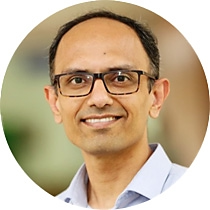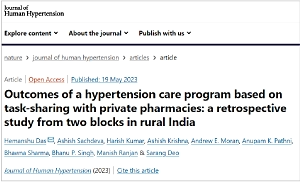Among NCDs, hypertension is the major risk factor for highly prevalent cardiovascular diseases (CVDs) in India. The Annual Health Survey, 2014 reported prevalence of hypertension as 20.1% in rural Bihar for individuals above 18 years. Prevalence of prehypertension will have a cumulative effect on the existing disease burden in the near future thus making it necessary to try out various innovations that provide screening and timely management for hypertension in the state. Research has shown that pharmacists can enable prevention and early detection, and can help in optimizing and ensuring compliance with medicine therapy regimens among individuals with NCDs. Pharmacists usually act as the first point of contact for healthcare among the rural population. Therefore, leveraging pharmacists in the social franchise model by providing them with appropriate training, equipping them with technology, and by giving the right incentives, pharmacists can be enabled to provide focused interventions, specialized counselling, and care coordination. This could lead to improved patient engagement and help achieve better outcomes against NCDs.
In this context, MIHM is assessing a telemedicine-enabled, task-shifting based private sector primary healthcare model for the management of hypertension in Bihar. The primary objective is to assess if a greenfield prototype of pharmacy-led opportunistic screening for hypertension can increase patient enrolment in hypertension care, improve awareness of hypertension status, and/or improve the proportion of individuals with controlled blood pressure.









